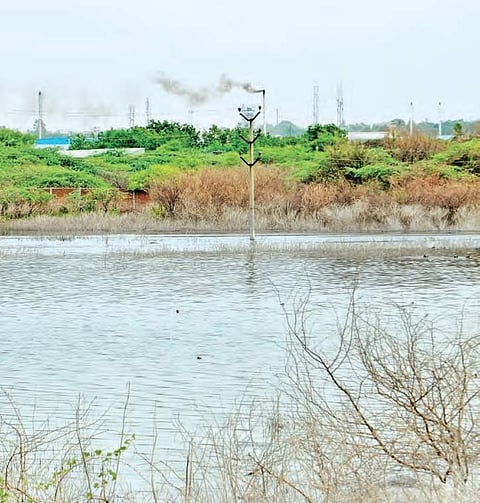

HYDERABAD: A lake spread over 70-acres, far from human habitation and not known to many, is protected naturally on one side by hillocks and is located inside a university. Looking at the description, one might assume that the lake is also protected from water pollution.
Unfortunately, that is not the case of the 70-acre lake inside Professor Jayashankar Telangana State Agricultural University(PJTSAU) as it is getting destroyed due to pollution caused by industrial and household sewage. The lake occupies almost half of the Agri-Biodiversity Park which is spread over 150 acres inside the university.
Dr A Krishna, principal scientist and head, AICRP on agroforestry at PJTSAU, which maintains the park, said, “Once upon a time fishermen used to regularly release fish seedlings in the lake and go fishing. Over the years they realized that the fishes are unable to survive due to pollution and stopped fishing. Even though the park has such a huge lake, a large part of about `10 lakh the university spends annually on the park’s maintenance goes towards providing water from bore wells and tankers because the lake water is absolutely polluted.”
The lake is getting polluted due to the inflow of polluted water through a drain from the nearby Noor Mohammad Kunta which, in turn, is highly polluted due to the industrial effluents from the Kattedan Industrial Area and also due to the inflow of sewage from homes in the surrounding residential area.
Dr V Vasudeva Rao, principal scientist and ornithologist at PJTSAU and one of the scientists associated with Agri-Biodiversity Park since its inception, said, “The university had written to the Telangana State Pollution Control Board earlier about the issue. It has to be seen what impact the pollution will have on the bird population in the park.”